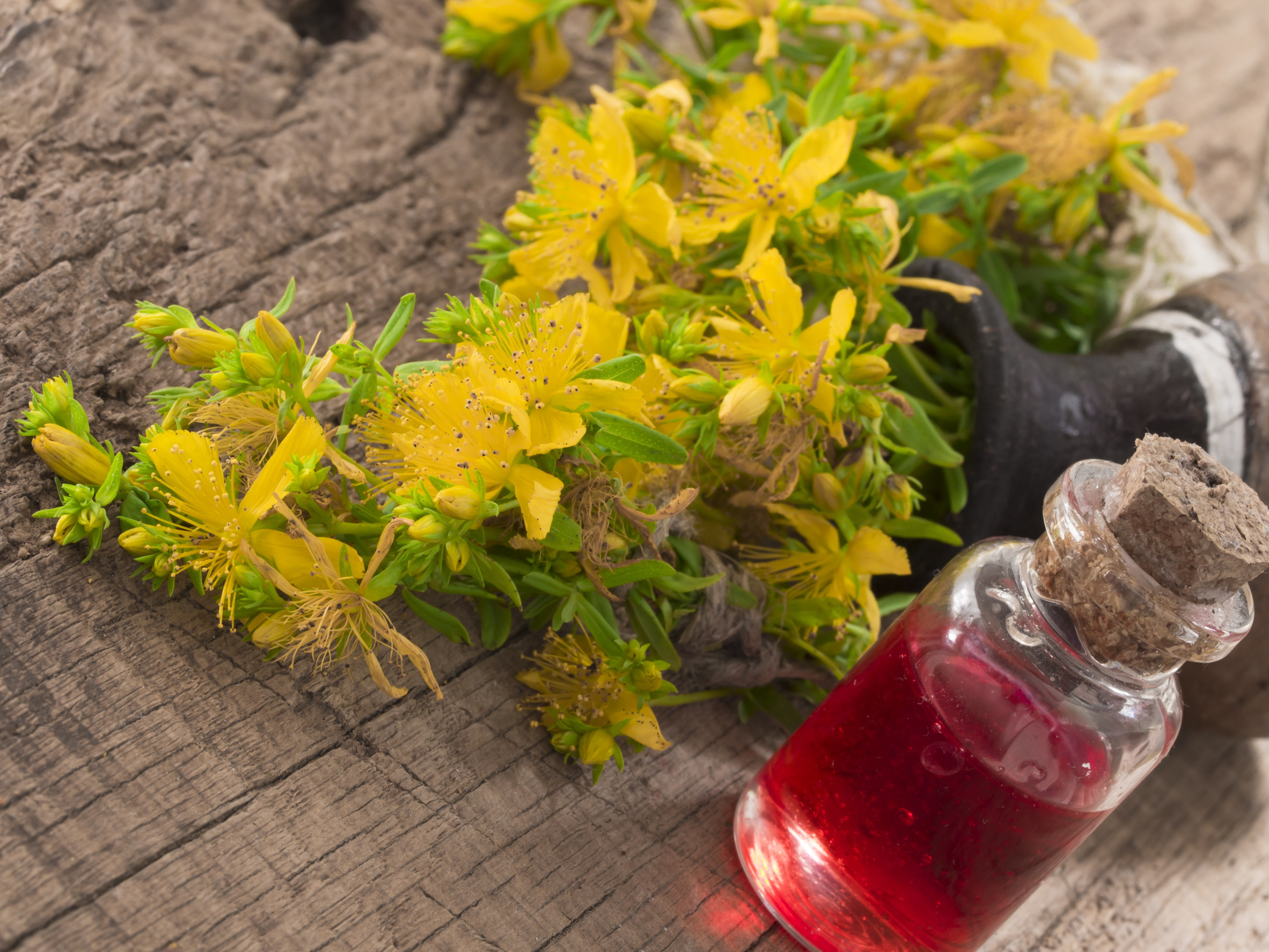Supplements are everywhere—on store shelves, in influencer videos, and even recommended casually by friends. But if you’re taking medications for heart health, it’s not always safe to assume that “natural” means “harmless.” In fact, many over-the-counter supplements can cause dangerous heart medication interactions that impact blood pressure, rhythm, and even the effectiveness of life-saving prescriptions. The scary part? Most of these combinations are still perfectly legal and often overlooked by patients and doctors alike. Before you pop another pill, make sure it isn’t quietly working against your heart.
Heart Medication Interactions Everyone Needs to Know About

Image Source: 123rf.com
1. St. John’s Wort
St. John’s Wort is often used to treat mild depression or anxiety, but it’s notorious for interacting with a long list of prescription medications. For heart patients, it can be especially dangerous when taken alongside blood thinners, beta-blockers, or statins. This herb speeds up the metabolism of certain drugs, making them less effective or causing unpredictable fluctuations in dosage levels. For example, it may reduce the potency of medications like digoxin or warfarin, leading to dangerous outcomes. Despite its reputation as a mood-booster, it’s one of the most problematic heart medication interactions on the market.
2. Grapefruit Extract
While technically a fruit rather than a supplement, grapefruit extract is often sold in concentrated pill form for weight loss or detox purposes. But it’s well-known in the medical world for interfering with enzymes in the liver that metabolize heart medications. This interference can cause medications to build up to toxic levels in the bloodstream. Calcium channel blockers, statins, and anti-arrhythmia drugs are especially vulnerable to this effect. Doctors often warn patients to avoid grapefruit entirely, but many forget to mention its supplement form.
3. Fish Oil (Omega-3)
Fish oil is widely taken for its heart benefits, but it’s a double-edged sword for those already on blood thinners like warfarin, clopidogrel, or aspirin. Omega-3s naturally thin the blood, which can enhance the effect of your medication and raise the risk of bleeding complications. While modest doses may be safe, combining high-dose fish oil with prescription anticoagulants can be a dangerous mix. Even nosebleeds or easy bruising could be signs that your blood is too thin. Always let your doctor know if you’re supplementing with fish oil alongside other heart medication interactions.
4. Coenzyme Q10 (CoQ10)
CoQ10 is often praised for its role in energy production and its potential to reduce statin-related muscle pain. However, it can also reduce the effectiveness of blood pressure medications and blood thinners. Some studies show that CoQ10 lowers blood pressure, which could intensify the effects of drugs like beta-blockers or ACE inhibitors. In addition, it may lessen the impact of warfarin, increasing the risk of blood clots. While not inherently harmful, CoQ10 should be used cautiously if you’re on multiple heart medications.
5. Ginseng
Ginseng is a common ingredient in energy drinks, immune boosters, and mood-enhancing supplements. But it’s also known to increase heart rate and blood pressure, directly contradicting the goals of most cardiovascular medications. Ginseng may reduce the effectiveness of calcium channel blockers or interact unpredictably with blood thinners. Its stimulant-like effect can worsen arrhythmias or contribute to hypertension in sensitive individuals. What seems like a simple herbal boost could quietly undermine your entire heart treatment plan.
6. Vitamin K
You might not think of vitamins as risky, but for heart patients on warfarin or other anticoagulants, vitamin K is a serious concern. This vitamin plays a crucial role in blood clotting, and excess intake can make blood thinners less effective. Many people take multivitamins or green superfood powders that are rich in vitamin K without realizing the implications. It’s not about avoiding vitamin K completely, but keeping intake consistent and monitored. This is one of the most overlooked heart medication interactions for patients trying to stay “healthy.”
7. Hawthorn

Image Source: 123rf.com
Hawthorn is an herbal supplement often marketed for heart support, and while it can help improve circulation and mild heart failure symptoms, it comes with risks. It has a potent effect on blood vessels and heart rate, which can enhance or counteract the effects of prescription medications. Some users have experienced dangerously low blood pressure or irregular heart rhythms when combining hawthorn with beta-blockers or nitrates. Because it’s natural, many assume it’s a safe complement—but its active compounds are surprisingly powerful. Always disclose its use to your cardiologist before adding it to your routine.
Just Because It’s Legal Doesn’t Mean It’s Safe for Your Heart
Navigating heart health is complicated enough without throwing hidden risks into the mix. These supplements, while common and often recommended for general wellness, can cause serious and sometimes fatal heart medication interactions when paired with prescription drugs. If you’re taking medication for high blood pressure, heart rhythm issues, or cholesterol, every supplement you take should be cleared with your doctor or pharmacist. It’s not about avoiding supplements entirely—it’s about using them wisely, safely, and with full knowledge of their impact.
Have you ever had a bad reaction from mixing supplements with your heart medications? Share your story—or ask your questions—in the comments to help others stay informed and protected.
Read More
11 Foods That Interfere With Your Medications—And Could Cost You Your Health
10 Over‑The‑Counter Drugs That Can Interact Fatally With Common Prescriptions

